Our year-end coverage continues with a look at the best performances of 2021. Rather than divide categories into supporting or lead or by gender, we’ve written about our 35 favorites, period. (Well: a few more, if you add a grouping we couldn’t leave out.) Check our countdown below and start watching the ones you’ve missed here.
35. Katia Pascariu (Bad Luck Banging or Loony Porn)
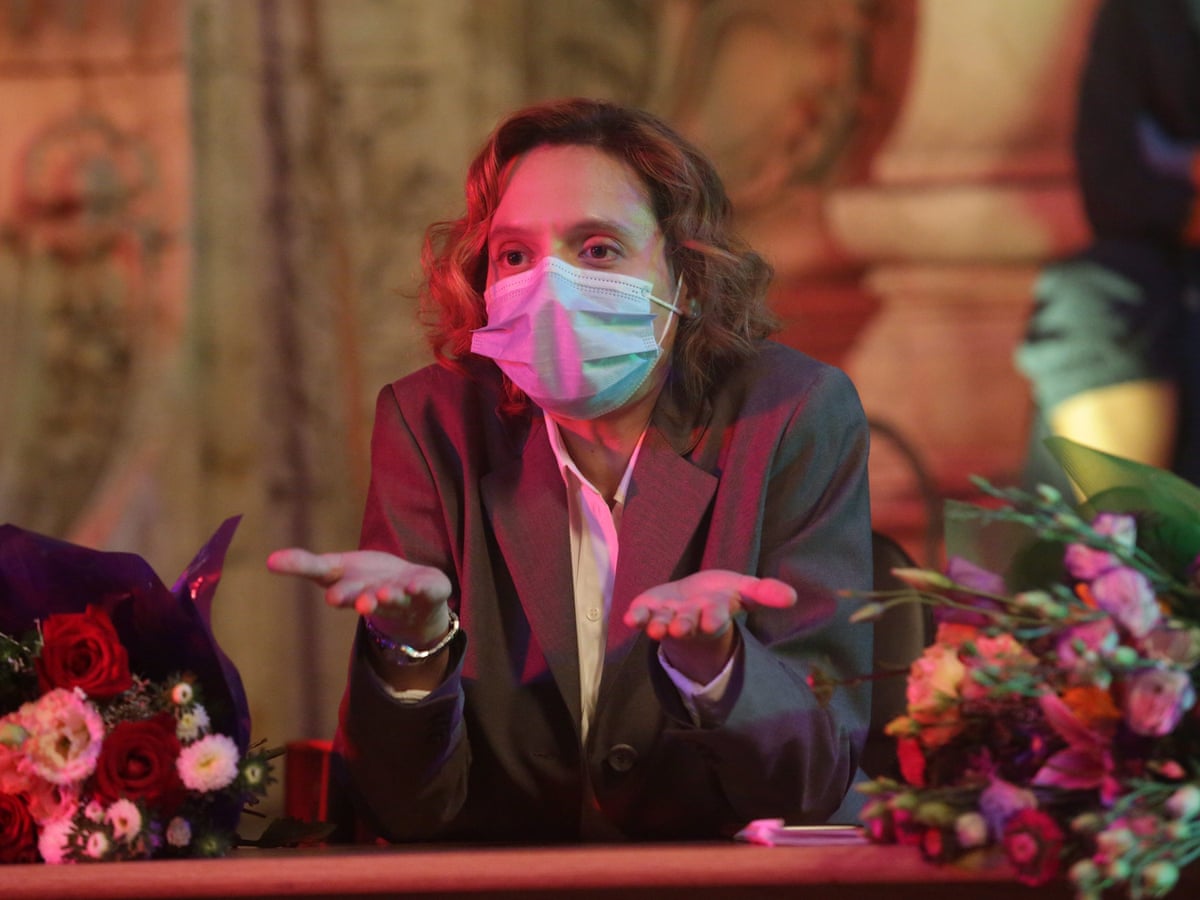
Katia Pascariu’s Emi, a teacher with a circulating home sex tape, is full of defiance. She walks around her Romanian homeland without pause, exasperated and disobedient. In the face of conflict she argues for her personal decisions, showing the sheer absurdity of the situation. Pascariu is the driving force behind Bad Luck Banging or Loony Poon, a comedy that leans on the effectiveness of her masked facial expressions and dialogue simmering with frustration. She’s the film’s only memorable face, synonymous with the farcical but realistic nature of her story, bringing to life a mishmash of ideas from writer-director Radu Jude. – Michael F.
34. Michael Greyeyes (Wild Indian)

There’s a deeply unsettling atmosphere to Wild Indian, many scenes almost unbearable to watch. Much of this is courtesy of Michael (formerly Makwa), played with a haunting menace by Michael Greyeyes. Channeling some mixture of Patrick Bateman and Anton Chigurh, Michael feels like this unstoppable, unknowable force who can snap at any moment, yet on the surface he has a peculiar charm that wins over the people around him. What’s even more interesting is the humanity that still seems to lurk somewhere within him. You can see in Greyeyes’ eyes the pain that has caused him to become this man he could have avoided being with a different childhood. That cycle of violence was already instilled before he was born, though, and it has engulfed all around him. – Mitchell B.
33. Denzel Washington (The Tragedy of Macbeth)
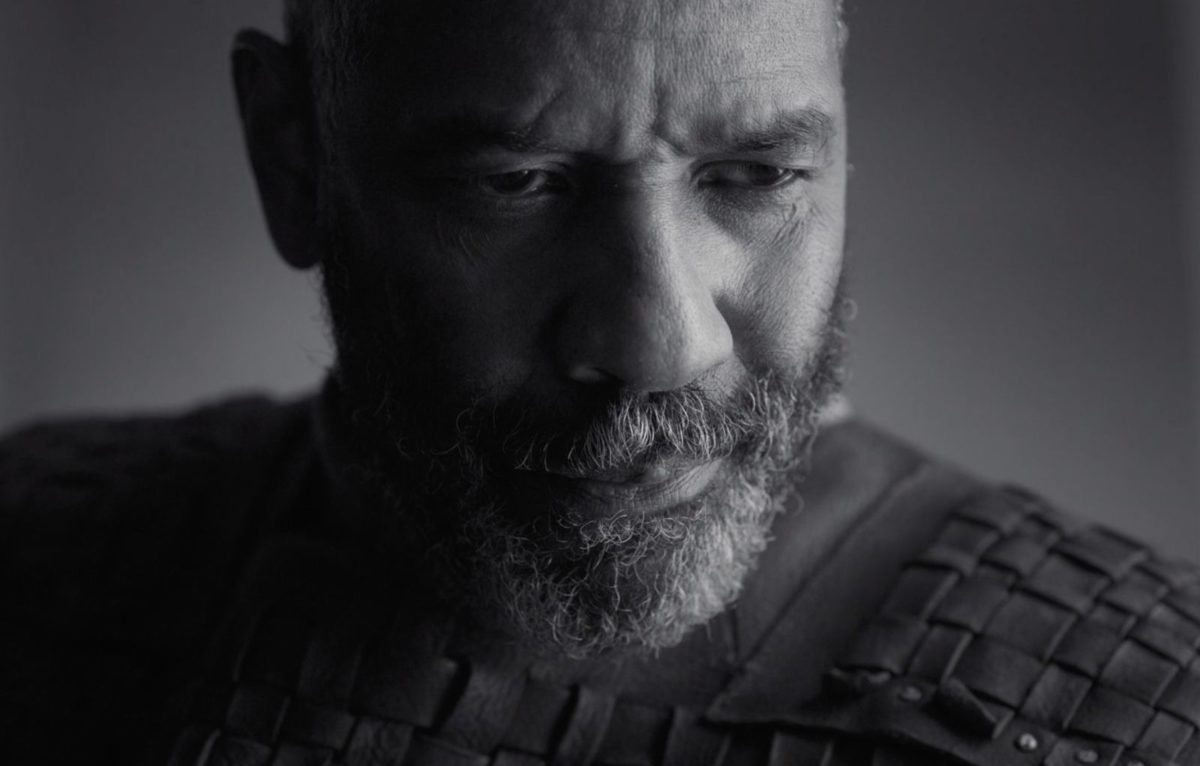
Denzel’s Macbeth is a haggard, downtrodden war veteran: a loyal subject passed over again and again for further patronage by King Duncan (Brendan Gleeson), he spots one final glimpse at glory and the chance of a legacy. Washington, a Shakespeare specialist not often given the opportunity to shows such chops on film, makes a stronger impression in Joel Coen’s adaptation than Frances McDormand’s Lady Macbeth, his both commanding and self-effacing portrayal showing a man meting out death as a way to hang onto what’s left of a pitiful life. – David K.
32. Agathe Rousselle (Titane)
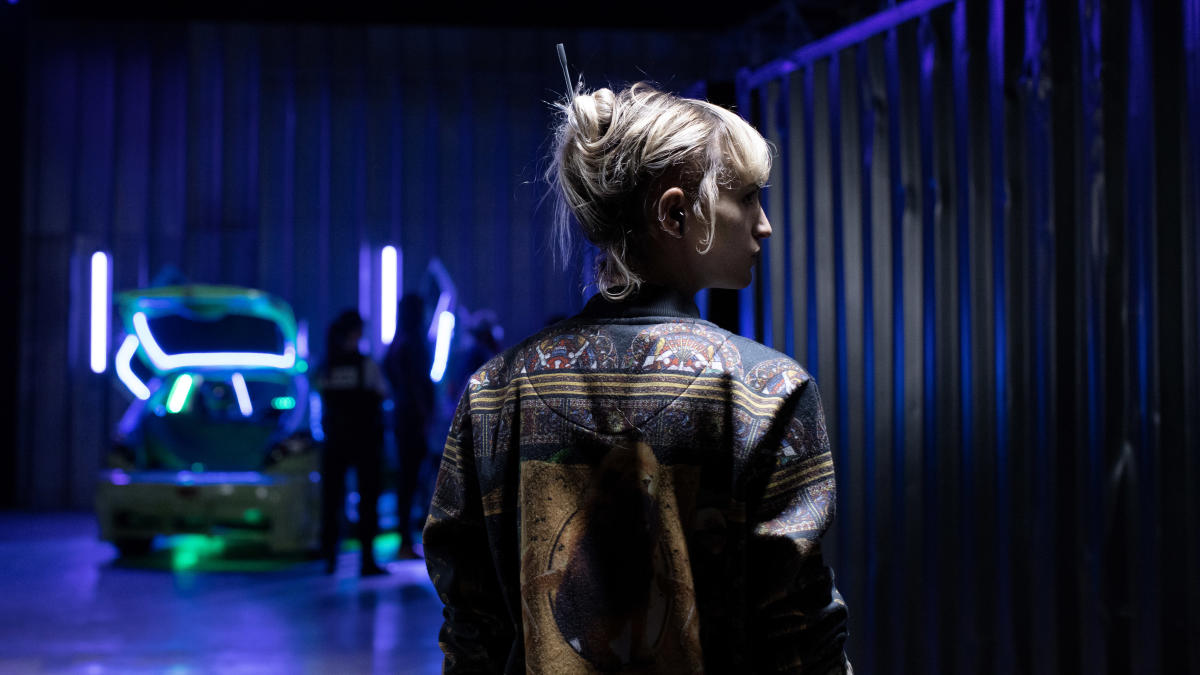
One watch of Titane and you’ll be in disbelief this is the feature acting debut of star Agathe Rousselle. First taking the role of serial killer Alexia and then her disguise as firefighter Vincent’s (Vincent Lindon) son Adrien, Rousselle channeled the physical nature of director Julia Ducournau’s film in order to deconstruct the barriers that hold us back from connecting with one another and unleash the true heart of the character that lurked within. It’s a performance of gradual revealing, inviting the audience further and further into the soul of this person as they become more in touch with their own self—to truly understand who they are and open themselves up to the possibility of being seen, and being loved. – Mitchell B.
31. Clayne Crawford (The Killing of Two Lovers)
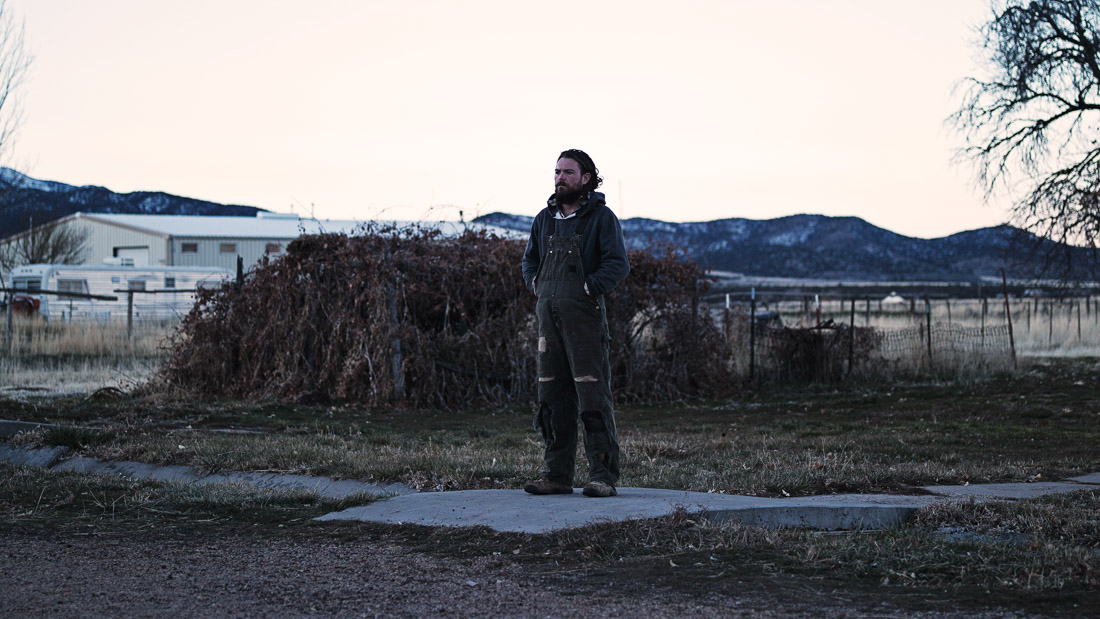
The Killing of Two Lovers, a small divorce drama from Robert Machoian, finds Clayne Crawford playing a separated father grasping towards his wife and their children. Giving a measured, often quiet performance, Crawford finds both sympathy and empathy in the silence of his situation, resting in a hopeful melancholy. He attempts to be both angry and subdued, pushing his stronger emotions down while finding joy in the littlest of moments—a park day with his kids, a drive around the block with the woman he loves. Crawford gives an understated, underrecognized performance, the variety of which may not garner awards but deserves necessary praise. – Michael F.
30. Richard Ayoade (The Souvenir Part II)
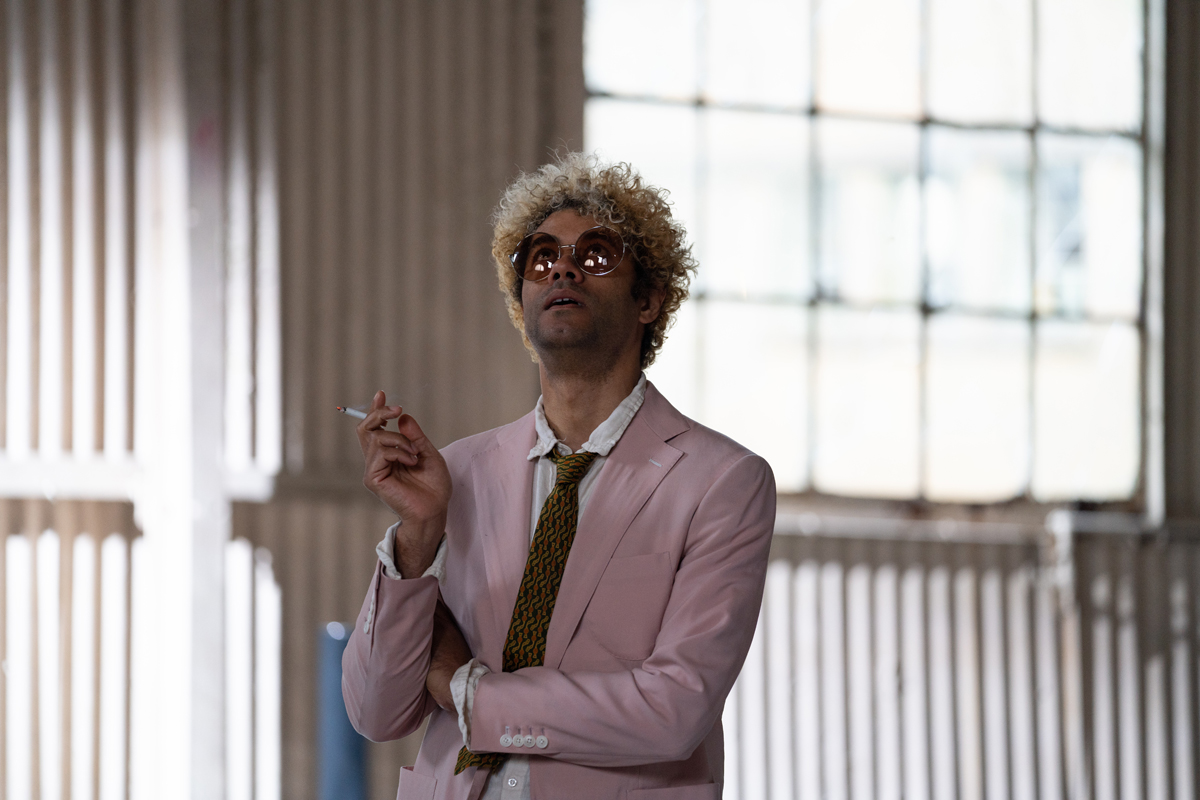
In this consummately British film we can only give Richard Ayoade’s Patrick the epithet he deserves: he’s a complete prat. Director Joanna Hogg provides him a layered character––still he’s not just an antagonist or avatar of male privilege to hiss and boo at. Watching a quite dazzling sequence from his thesis film, with ’50s Hollywood musical-alike group choreography set to Wire’s aggressively heavy “Pink Flag,” we gauge this is in fact a talented guy, off-putting arrogance and all. But his final scene is a gloomy harbinger of doom, with Honor Swinton Byrne’s Julie moving symbolically into the light as Patrick traipses off down a Soho back alley. – David K.
29. Clifton Collins Jr. (Jockey)
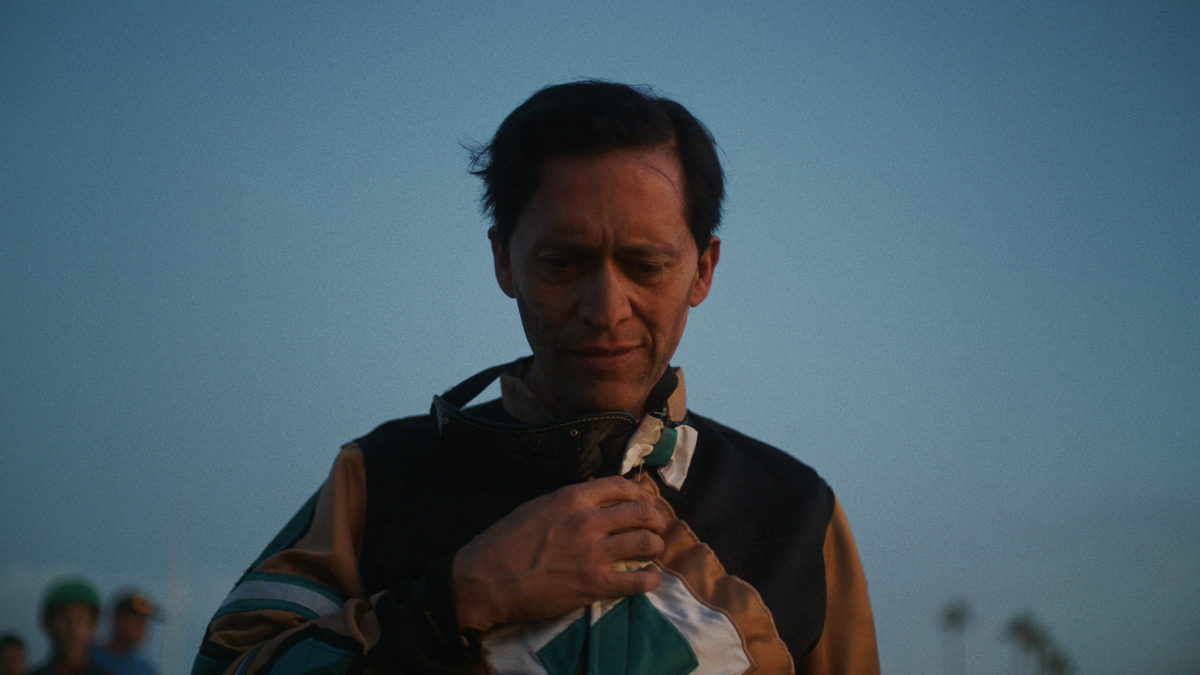
Few things feel better as a film lover than getting to see a longtime character actor, someone who’s been stealing scenes in supporting parts for decades, get the chance to shine in a plum leading role and absolutely knock it out of the park. Richard Jenkins in The Visitor. Melissa Leo in Frozen River. Clifton Collins Jr. in Jockey. As late-in-his-career rider Jackson, Collins imbues a soulfulness into this weary veteran of the sport that courses through every scene. There’s a resilience that pushes against the physical and emotional toll his sport has taken. Channeling his own enduring passion for acting, a career that similarly has its shares of highs and lows, the journeyman actor gives the performance of a lifetime. –Mitchell B.
28. Kim Min-hee (The Woman Who Ran)
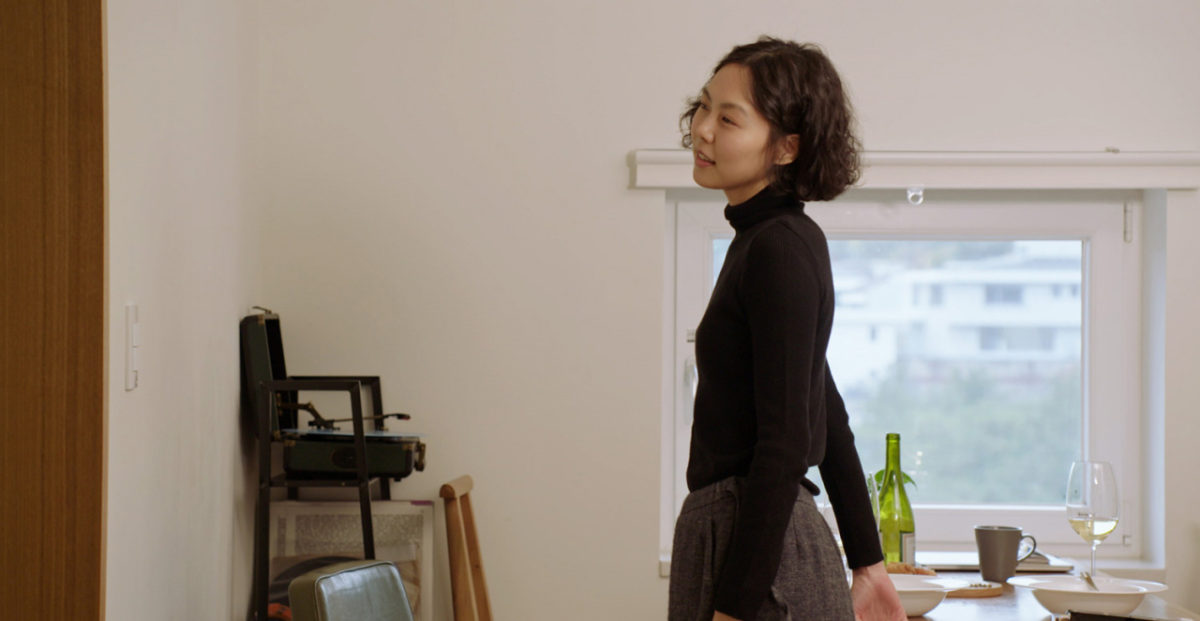
Kim Min-hee has delivered tremendous performances in a variety of Hong Sang-soo films and her work in The Woman Who Ran is no exception. The majority of this film is built around traditional conversations, reminiscing amongst old friends, and the gentle sensation that comes from catching up with someone who’s been gone from your life a long time. Yet an undercurrent of sadness runs throughout The Woman Who Ran, the actress being the perfect articulator of Hong’s particular brand of sly melancholy. It is a performance that seems understated initially but reveals itself to be more complex and emotionally provocative as time passes. – Logan K.
27. Clint Eastwood (Cry Macho)
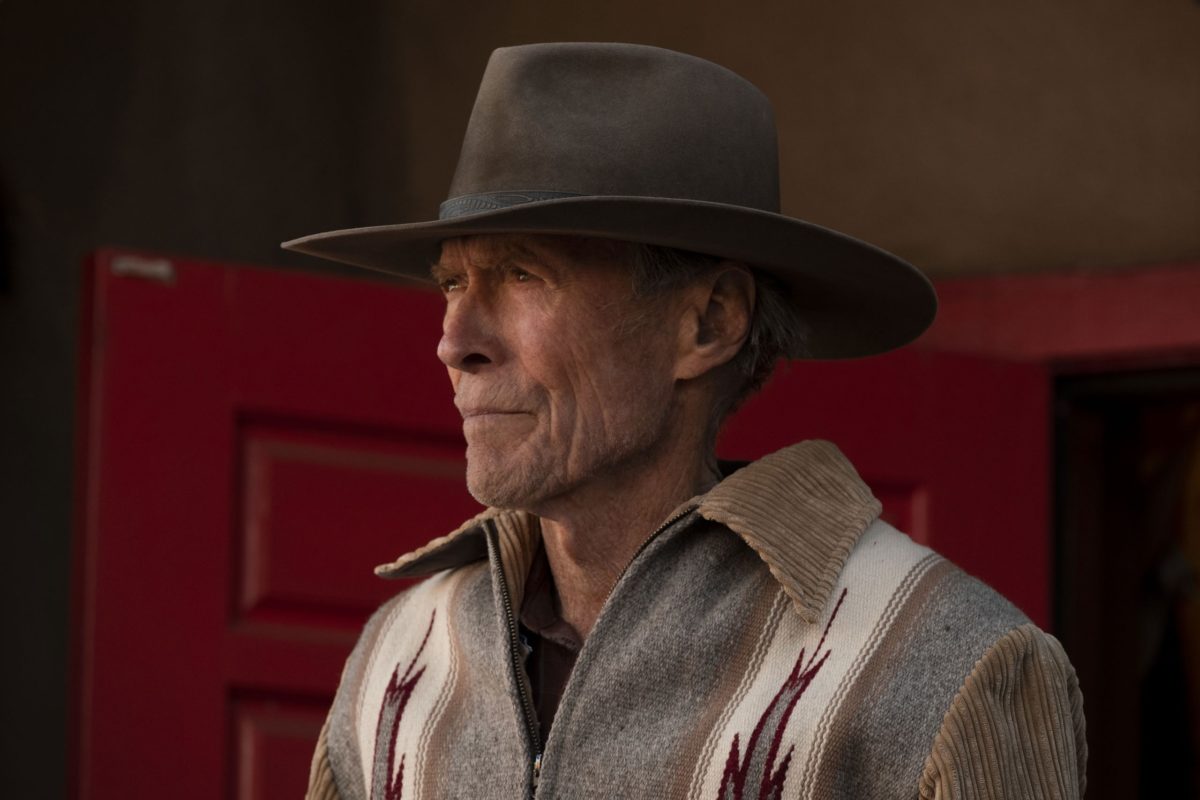
The thing is that he sounds old. Clint Eastwood’s voice probably conveyed seniority when he was 15 and has been gruff longer than I’ve been alive; in Cry Macho it’s broken, like a contraption worn of key parts. What it adds to Eastwood’s performance, and in toto a movie shaped around him, is pathos and concern aided by how often he seems ready to simply fall over. Thus six decades of screen acting hum on the surface: we need not imagine how this man sounded and looked through his life when the career testifies to stronger years long gone. – Nick N.
26. Deragh Campbell (Anne at 13,000 Ft.)
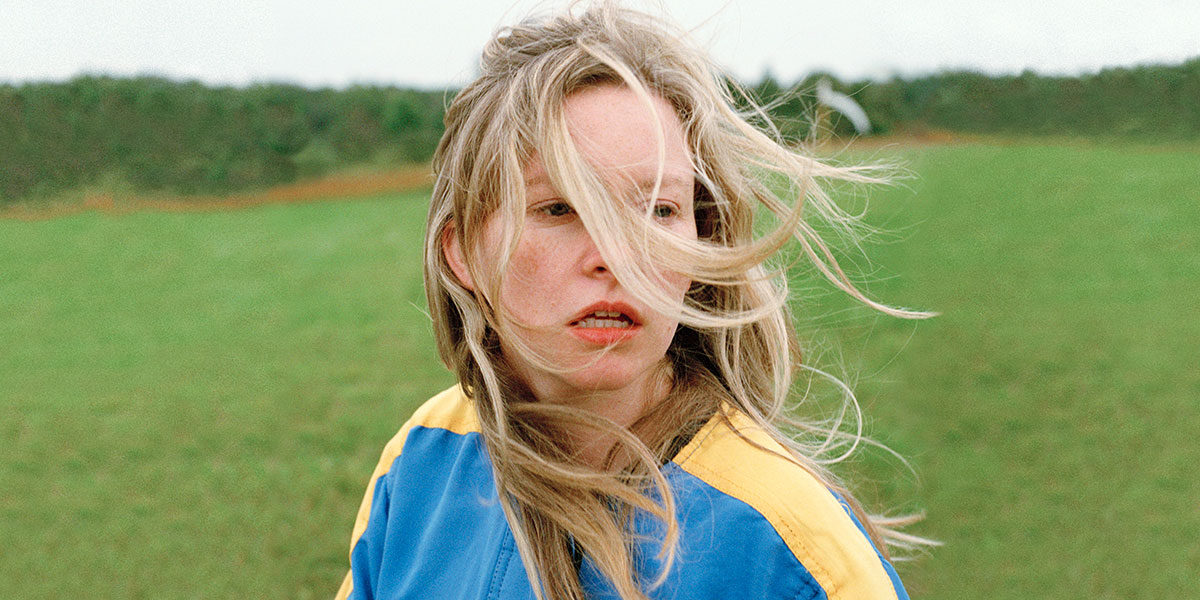
As Anne, Deragh Campbell is exuberant, destructive, and childlike; mid-skydive (her one respite from a seeming freefall into a fresh episode of an unspecified mental illness) she smiles and laughs ecstatically, then falls asleep. Through intimate, jagged closeups, Kazik Radwanski’s Anne at 13000 Ft., locks us into the chaos of Anne’s behavior, but also its calculations. Her outbursts, messiness, and destabilizing pranks are challenges her exasperated loved ones and co-workers can’t win. Campbell’s performance feels lived-in and unstudied, making room for the precise coping mechanisms and anachronisms of a person that go beyond the generalities of a diagnosis. – Gabrielle M.
25. Benedict Cumberbatch (The Power of the Dog)
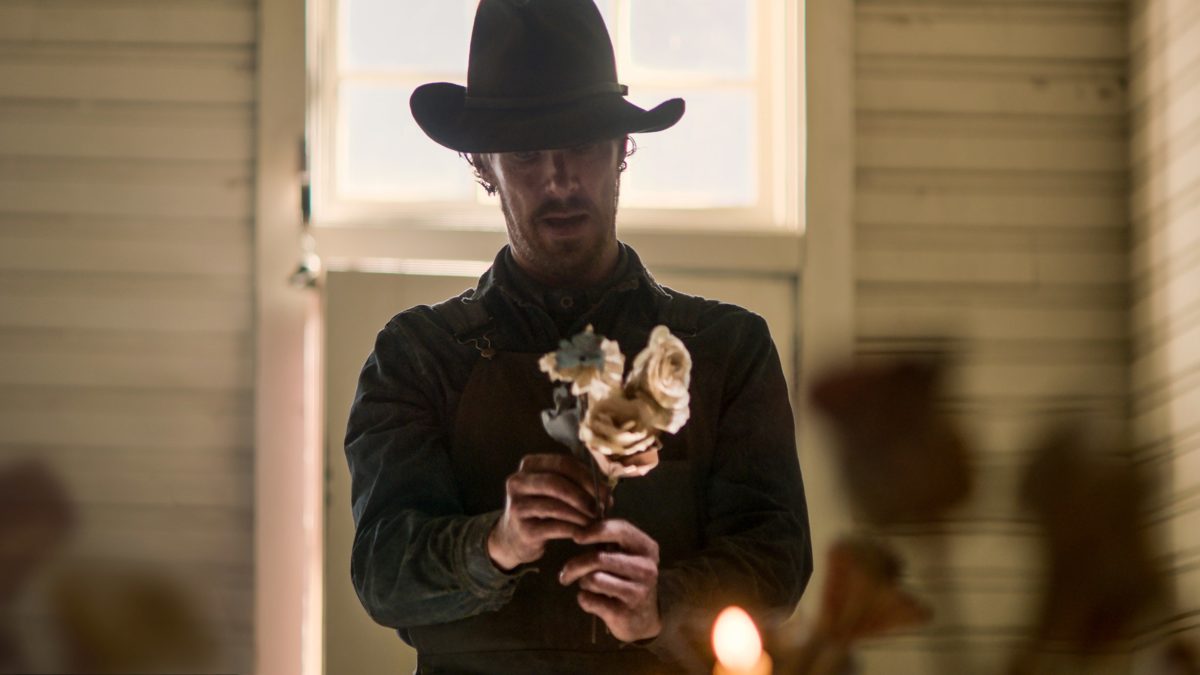
A brooding relic of the dying West, Montana rancher Phil Burbank becomes dispossessed at the mere sight or sound of civilized merriment. Yet Benedict Cumberbatch imbues this corrosive, sometimes cruel man with a conflicted soul caught between self-aggrandized cowboy mythmaking and his own repressed sexuality. In nearly every menacing scene, Phil haunts Jane Campion’s The Power of the Dog with a terminal sense of stasis and anxiety so all-consuming that he threatens the very core of emotional and social progress. And still his capacity for fond remembrances of mentor Bronco Henry suggests the essence of a far more complicated man who came of age in a time where tenderness had no place. – Glenn H.
24. Vicky Krieps (Bergman Island)
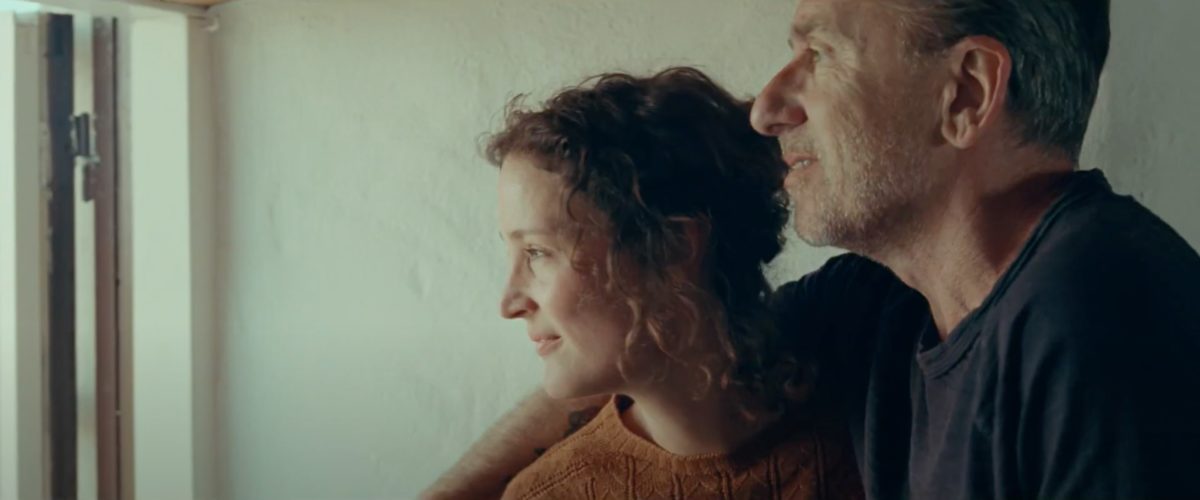
Although there is an activity called “Bergman Safari,” no one is really supposed to have fun on Fårö island, a sanctuary so revered by the auteur’s lovers that smiling seems like desecration. No one except for Vicky Krieps’ Chris, a filmmaker caught between the characters in her imagination, finding pleasure in the mundane, and how not to let either take complete hold of her. The earthy Krieps plays each scene tender and curious, like she’s in a process of discovering awe. There were few cinematic pleasures this year as delicious as surrendering to her laughter. – Jose S.
23. Joaquin Phoenix (C’mon C’mon)
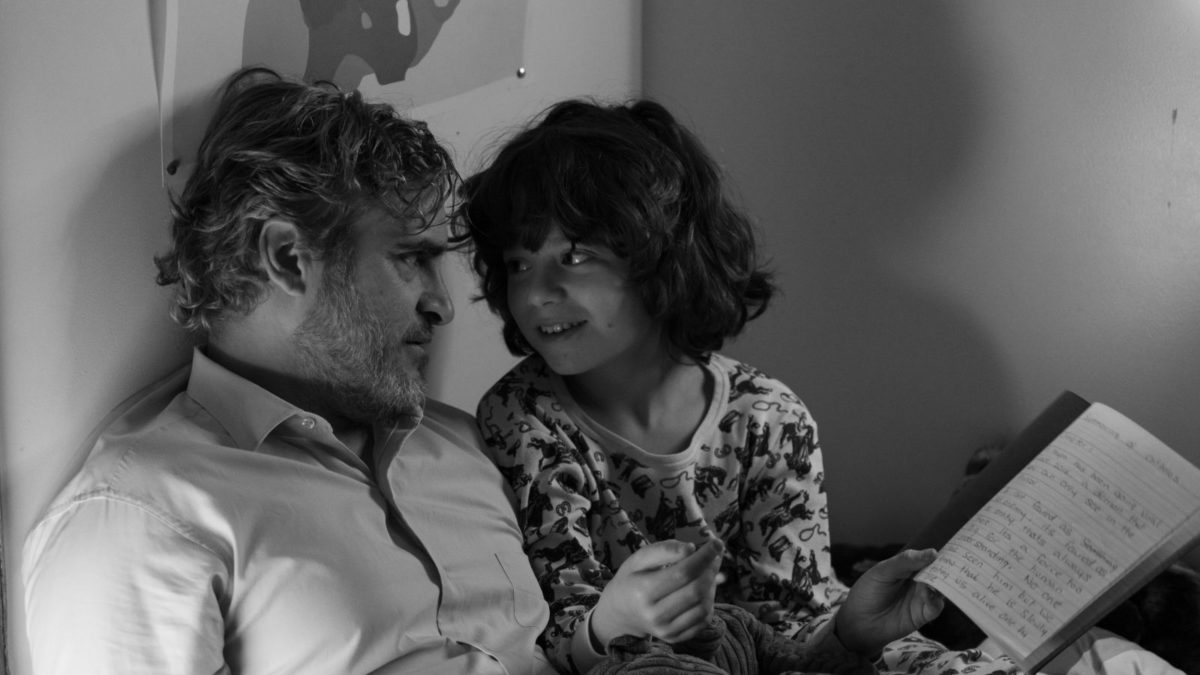
Joaquin Phoenix has made a career playing off-kilter, darkly charismatic characters often with a hint of villainy. In C’mon C’mon, Phoenix fills the shoes of Mike Mills’s humanist touch with warmth, earnestness, and calm as a likable father figure. Traversing the open road, Phoenix is giggly, curious, and silly as he embraces the childlike curiosity of the children he interviews, showing his sister’s son the world with open eyes. It is a powerful, heartbreaking performance precisely because of Phoenix’s open-hearted and soft approach. – Erik N.
22. Aditya Modak (The Disciple)
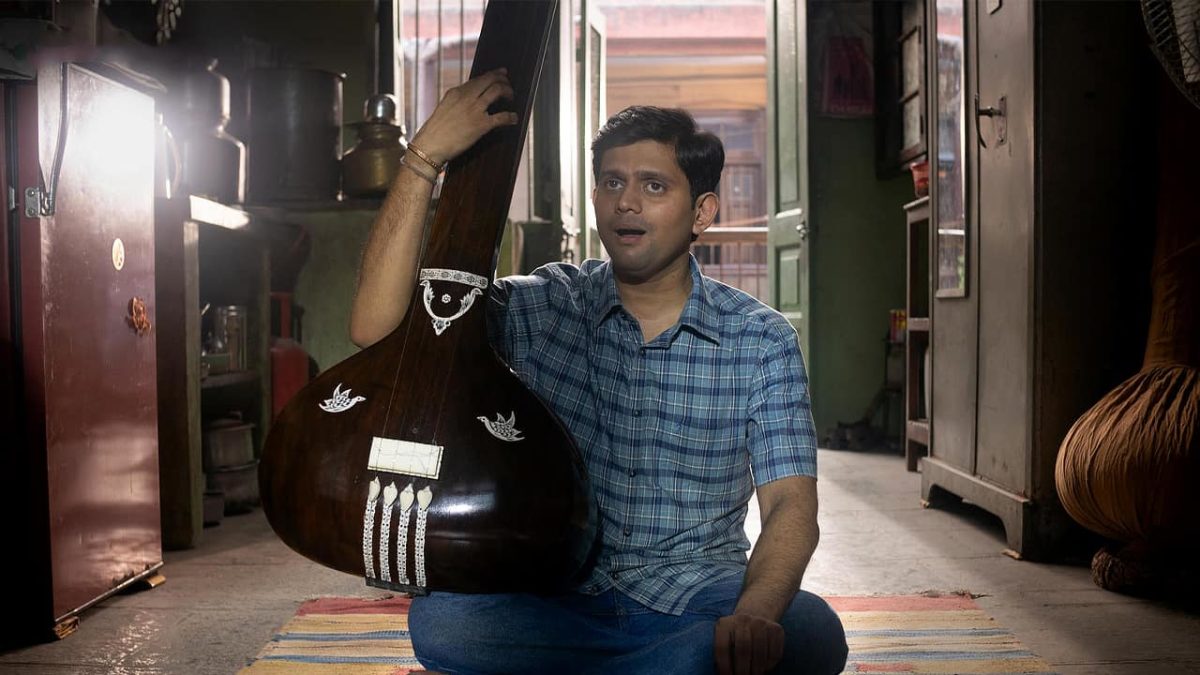
Aditya Modak’s character Sharad in The Disciple is the closest I’ve seen an Indian film and performance approximate the Paul Schrader God’s lonely man. That Sharad specializes in Indian classical music––shastra sangeet––that is traditionally derived as devotional and religious music makes it all the more potent. His performance has a genuineness in its stoicism. He hardly moves his facial expression, each condescending criticism given to him or praise given to him is met with the reaction of someone never satisfied. It comes to a head in the movie’s ultimate question: is it worth it? When Sharad plays, Modak embodies the characteristics of a robot. His character is one, always seeking a level of perfection and absolute mastery that is transcendent of his human capabilities. – Soham G.
21. Ruth Negga (Passing)
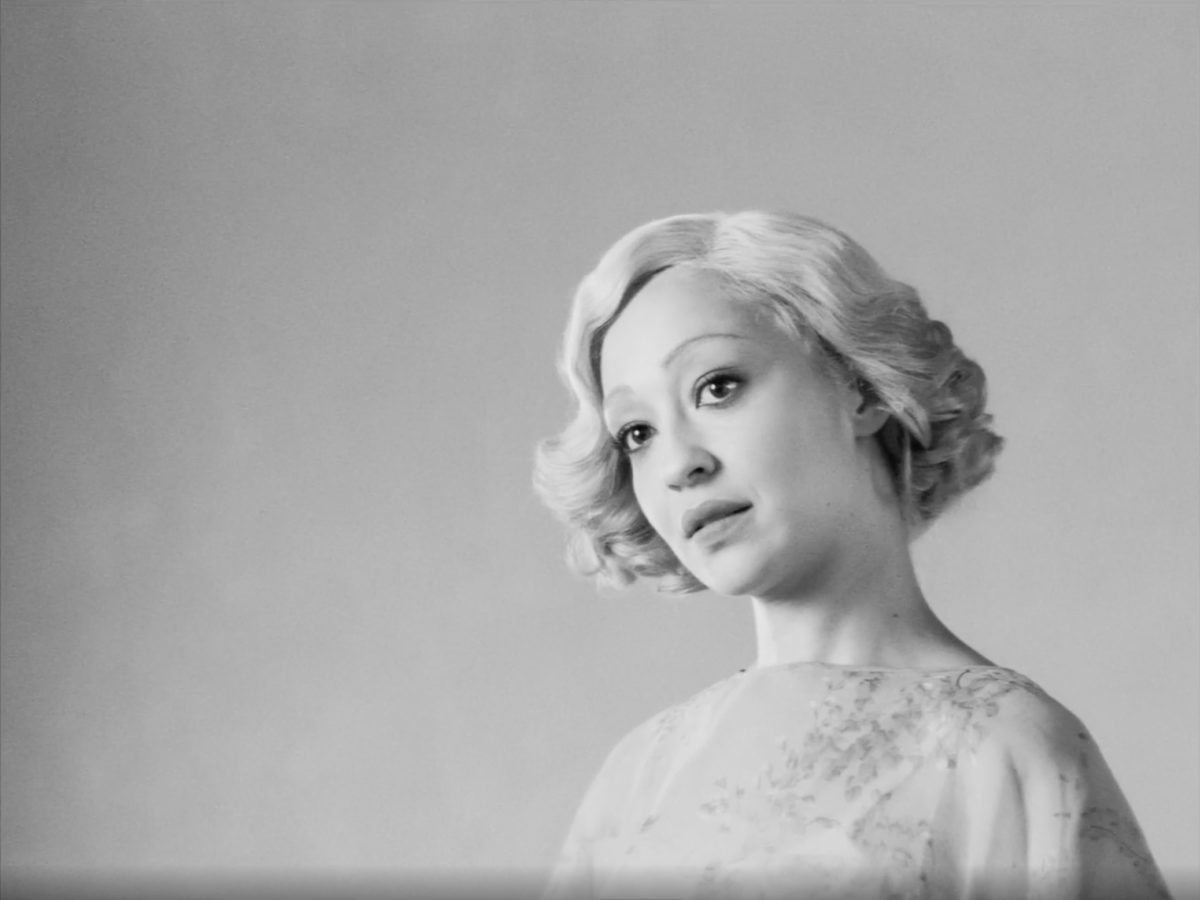
Ruth Negga has made an art from disappearing so smoothly into her characters that one can easily miss the delicate, undeniably present threadwork with which she weaves their humanity. As Clare in Rebecca Hall’s expressionistic drama, Negga portrays a Black woman passing as white in 1920s NYC. She gets to the essence of Clare by focusing on the wearing of masks—an actor playing a woman playing a woman. The finely layered work is a silk scarf of a performance, inviting intellectual discussion. But her enchanting tightrope act hits like a punch to the gut. – Jose S.
20. Willem Dafoe (Siberia)
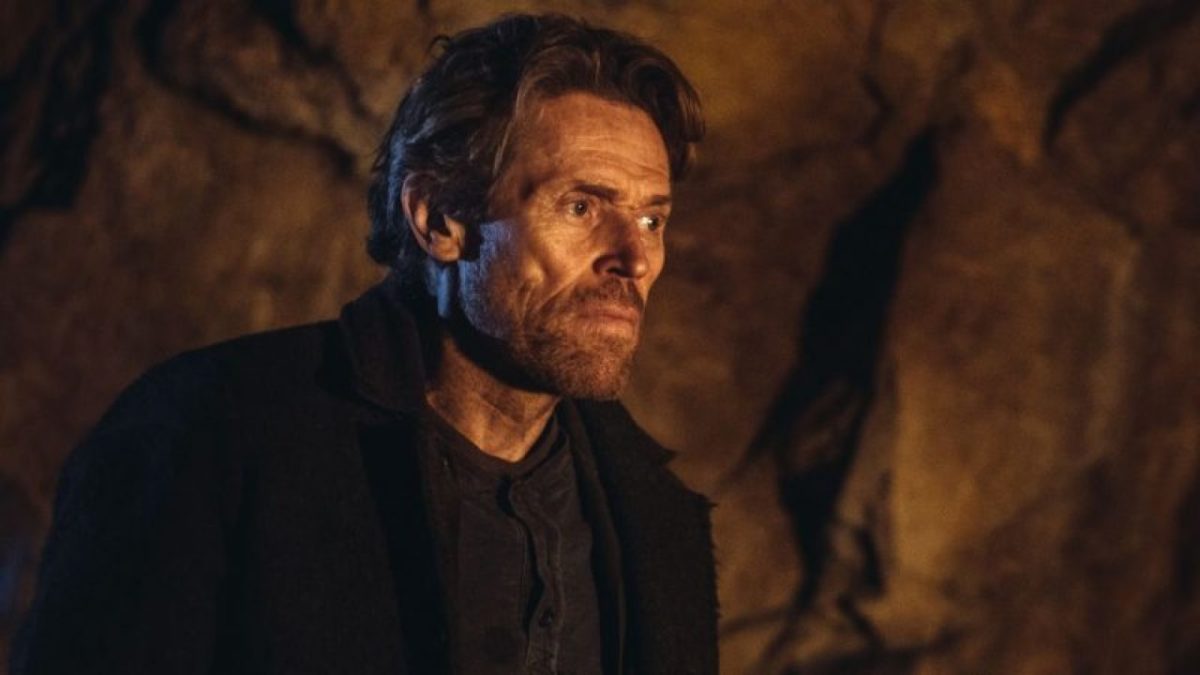
Filmmaker Abel Ferrara has found in Willem Dafoe a fearless collaborator who will go with him to the ends of the earth, sanity be damned. In the enigmatic and haunting Siberia, the two literally do just that. Dafoe plays Clint, a weathered soul who lives in virtual isolation save for the few local patrons of his bar at the base of a towering mountain range surrounded by snow. Visions of his father and brother (also played by Dafoe) begin to spawn memories of the past both grotesque and traumatic, splinters of the mind that are finally turning gangrenous. The result is a bonkers triple performance that beautifully embodies Ferrara’s ongoing obsession with tormented men cornered by loneliness, regret, and anger. – Glenn H.
19. Rachel Sennott (Shiva Baby)
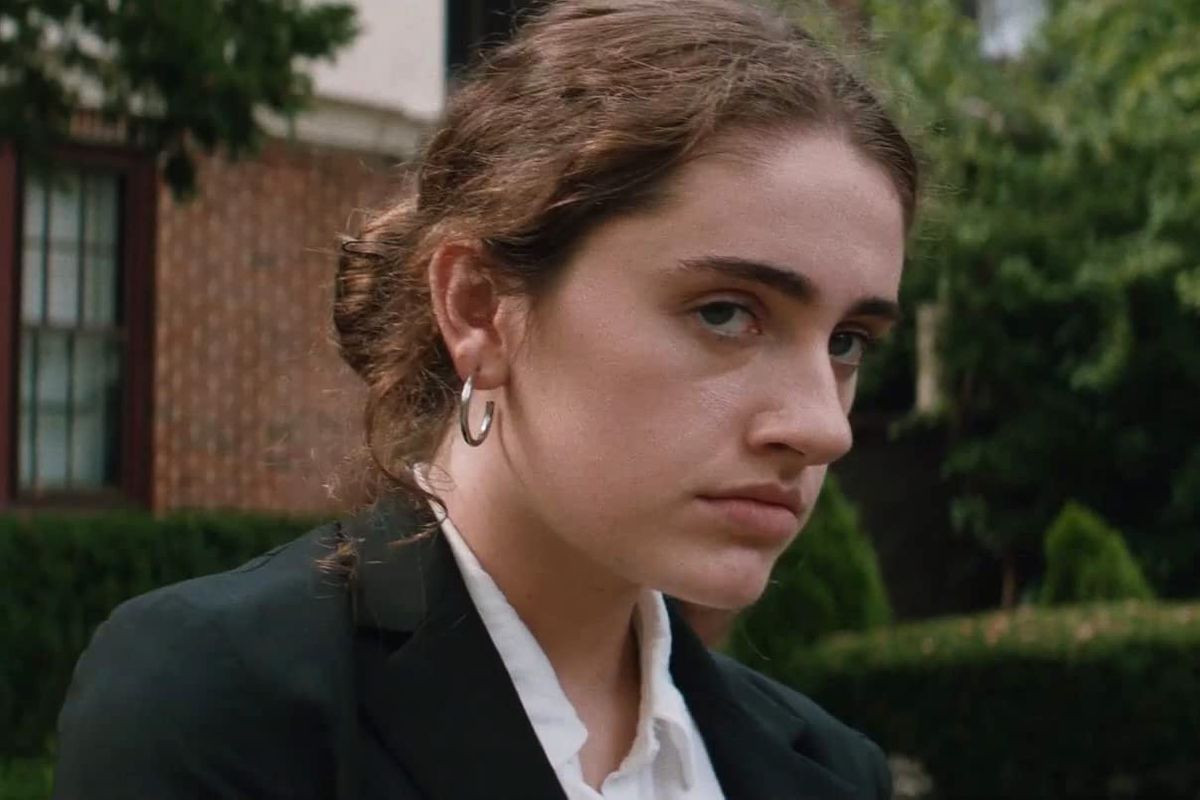
“I feel like it is one moment in her life. It’s like a coming-of-age story in one day. The events of the day had to happen for Danielle to grow.” So said Rachel Sennott when I interviewed her back in March to discuss her role in Emma Seligman’s brutally wondrous Shiva Baby. Indeed, part of the brilliance of both Sennott and Seligman is that they found a way to create a coming-of-age story that is neither cloying nor stepped in cliché. While Seligman’s writing and direction are air-tight, as is the supporting cast, the key ingredient for Shiva’s success is Sennott. The comedian and actress makes Danielle a character both sneeringly confident and believably wounded. Above all else, Sennott creates someone the audience identities with at every turn, with every mistake. It is no exaggeration to say she gives one of the great comic performances of the last decade. Also no exaggeration to say this is likely the first of many. — Christopher Schobert
18. Nicolas Cage (Pig)
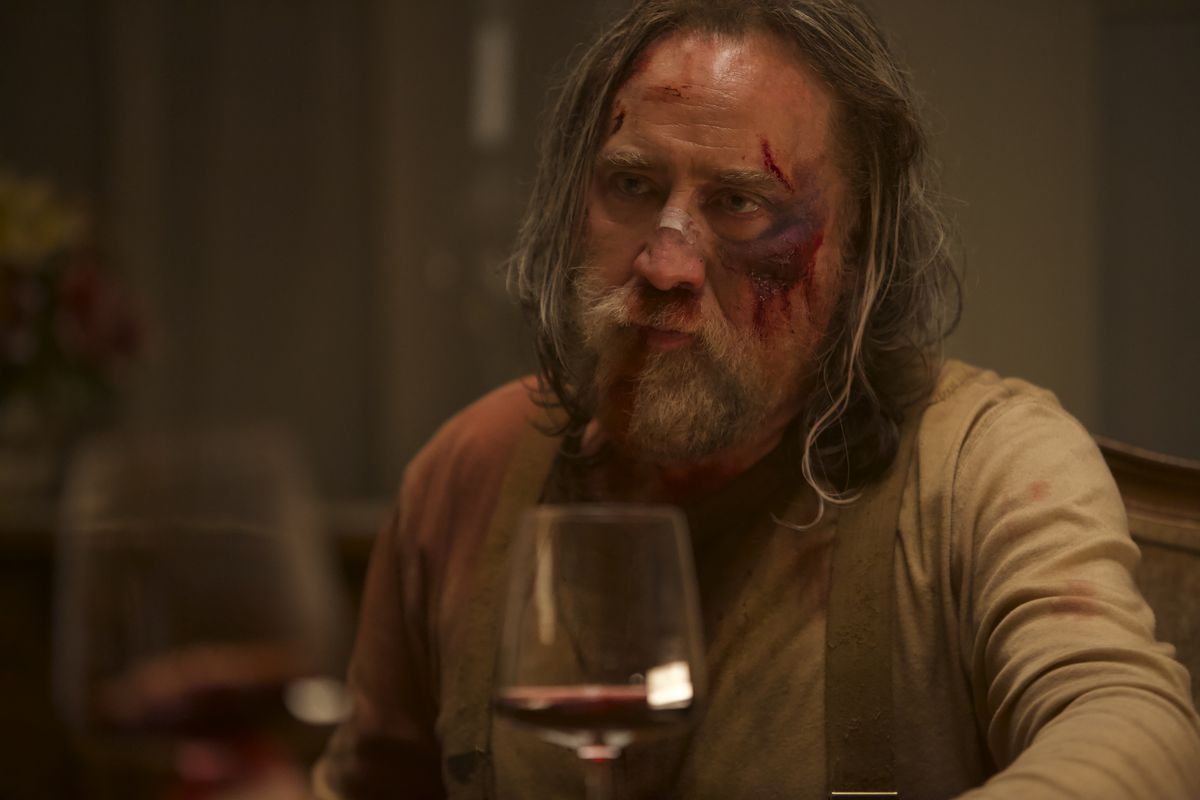
We take Nicolas Cage for granted. Throughout the years the over-the-top, expressionistic actor has been hitting the screens with portrayals that often glide on their own frequency. With Pig, Cage reminds us just what a talent he is. Digging into the heartbreak and nature of loss, Cage shines with a quietly subtle and intense portrayal as the renowned chef Robin Feld. As his tender and angry search for his truffle pig unfold, Cage confronts people with their failures just as he copes with his, rounding out a wholly magnetic performance without ever going too big. – Erik N.
17. Léa Seydoux (France)
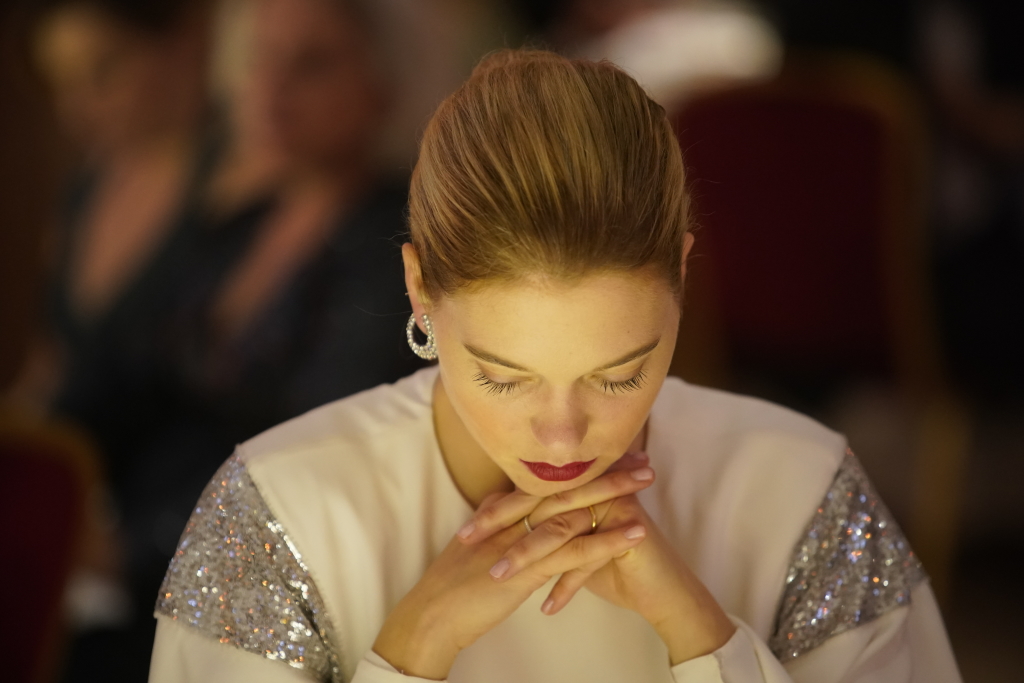
It’s probably a day-one assignment in acting class: learn to look sad. What Léa Seydoux does through Bruno Dumont’s France—a film suggesting melodrama before turning far crueler—is stranger. She pouts, lowers her eyelids, and cries, the whole deal, but God knows how much we’re taking this at (ahem) face value, to what extent her character’s performing for others, how much France itself is a Brechtian exercise in watching an actor act for us. Whatever the case: marvelous. – Nick N.
16. Oscar Isaac (The Card Counter)
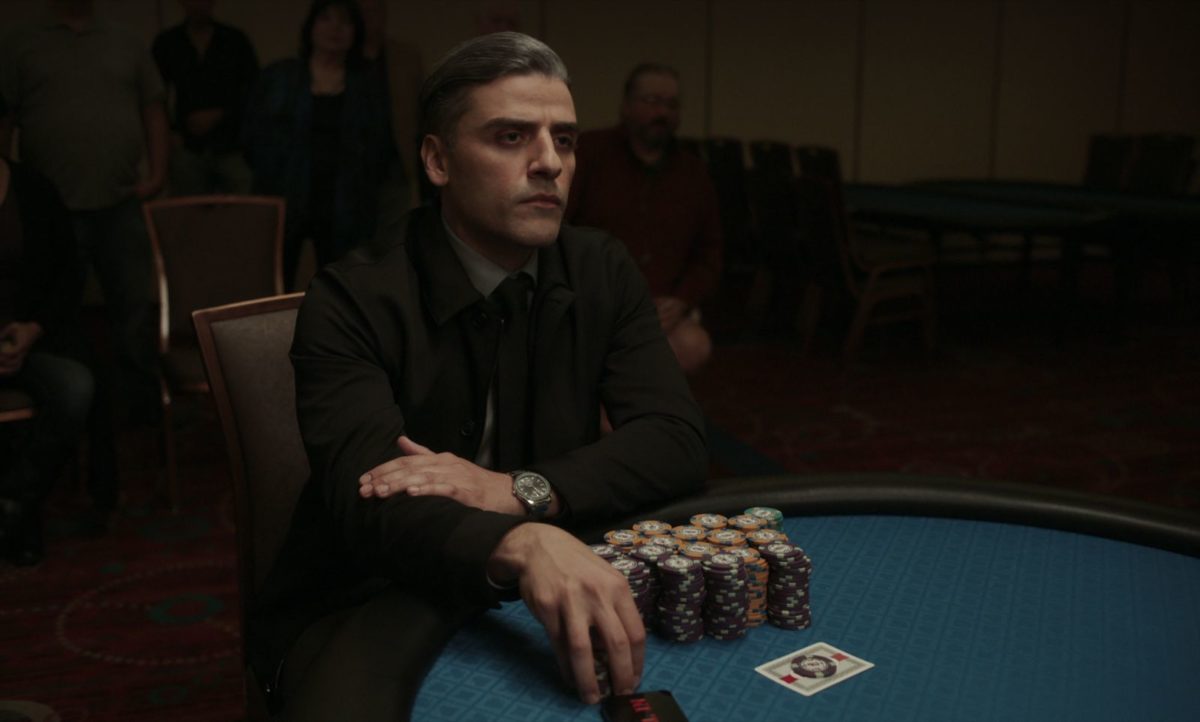
Oscar Isaac, like other Schrader stars, plays a character in William Tell who starts coming apart at the screws and bolts. Isaac initially presents himself as a suave mysterious hero. His low tenor voice, crisp speech, and sad eyes all speak to the perfect kind of hero in a sleek movie about poker. But as the film goes along, his seemingly well-put-together aura starts to fracture––he begins to shake, his voice trembles, his eyes widen, and well up just a little bit. In The Card Counter Oscar Isaac’s poker-face hides a devastating hand. – Soham G.
15. Cooper Hoffman (Licorice Pizza)
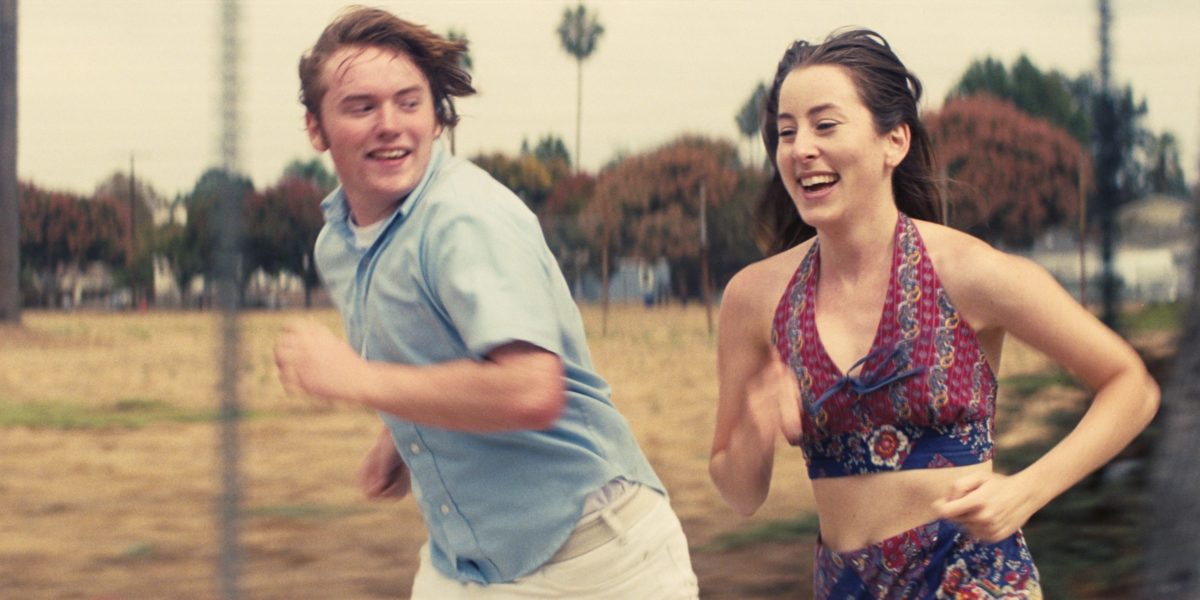
It may have taken decades of failure and years off more deserving careers, but we did it—we found a place for nepotism. Odds say Cooper Hoffman wouldn’t wind up in Licorice Pizza were it not for his origin, but whatever with that. Over one walk-and-talk it’s clear he’s of his own accord, and through the course of Paul Thomas Anderson’s (willfully, pointedly) uncomfortable don’t-call-it-a-relationship movie it’s hardly a task to understand how and why a 25-year-old would keep him in orbit. Maybe it’s not love—even in the heart-swelling final line, not love love—but as embodied by Hoffman, Gary Valentine engenders affection that hardly wanes. – Nick N.
14. Paula Beer (Undine)
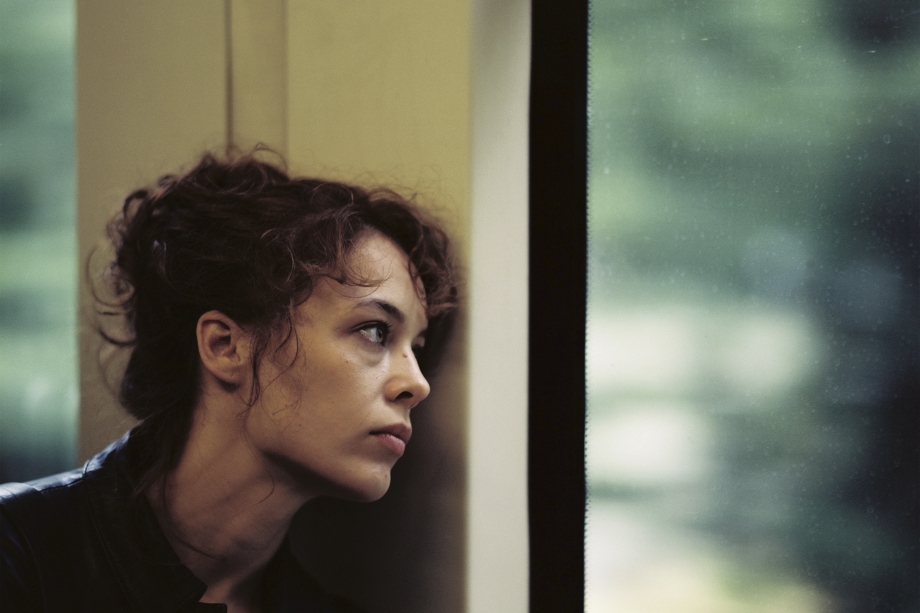
The magic of Christian Petzold’s Undine comes almost entirely from Paula Beer’s eyes, how they twinkle at the thought of finding everlasting love or reveal deep wells of sorrow when romantic folklore turns melancholic and complex. It is through her evolving point-of-view that the film’s examination of architectural / historical spaces and fantasy realms gain an equal measure of sublimity. Thus Beer’s nimbly pragmatic performance links Petzold’s two cinematic worlds, the swooning and hopeful melodrama, and the mythical, otherworldly tragedy. Both are hers to explore. – Glenn H.
13. Penélope Cruz (Parallel Mothers)
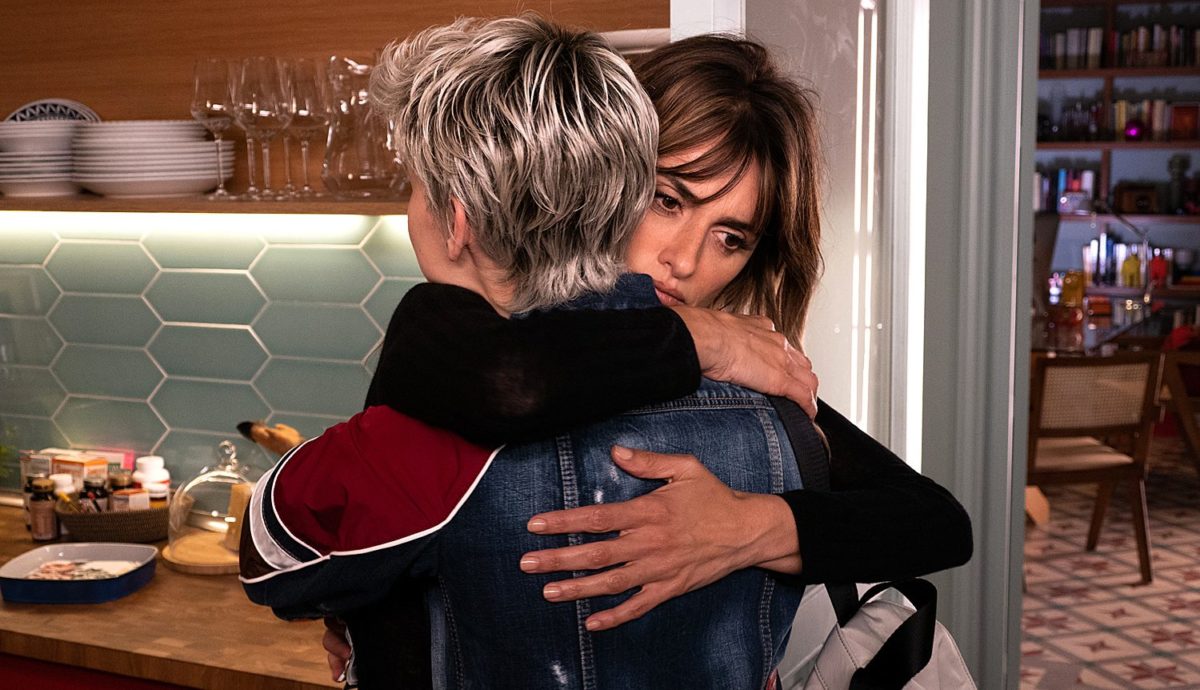
Sometimes an actor you thought you knew well invents a new expression. About halfway into Parallel Mothers, Penélope Cruz does just that––she furrows her eyebrows in Picasso-ian symmetry, only to have them reveal a horror so monumental it could’ve only been painted by El Greco. As Janis, a woman on the verge of losing those who matter the most to her, Cruz is devastating: she conveys the kind of pain being carried for generations, only made more tragic by the hint of hope revealed with every line delivery and every gesture. – Jose S.
12. Tōko Miura (Drive My Car)
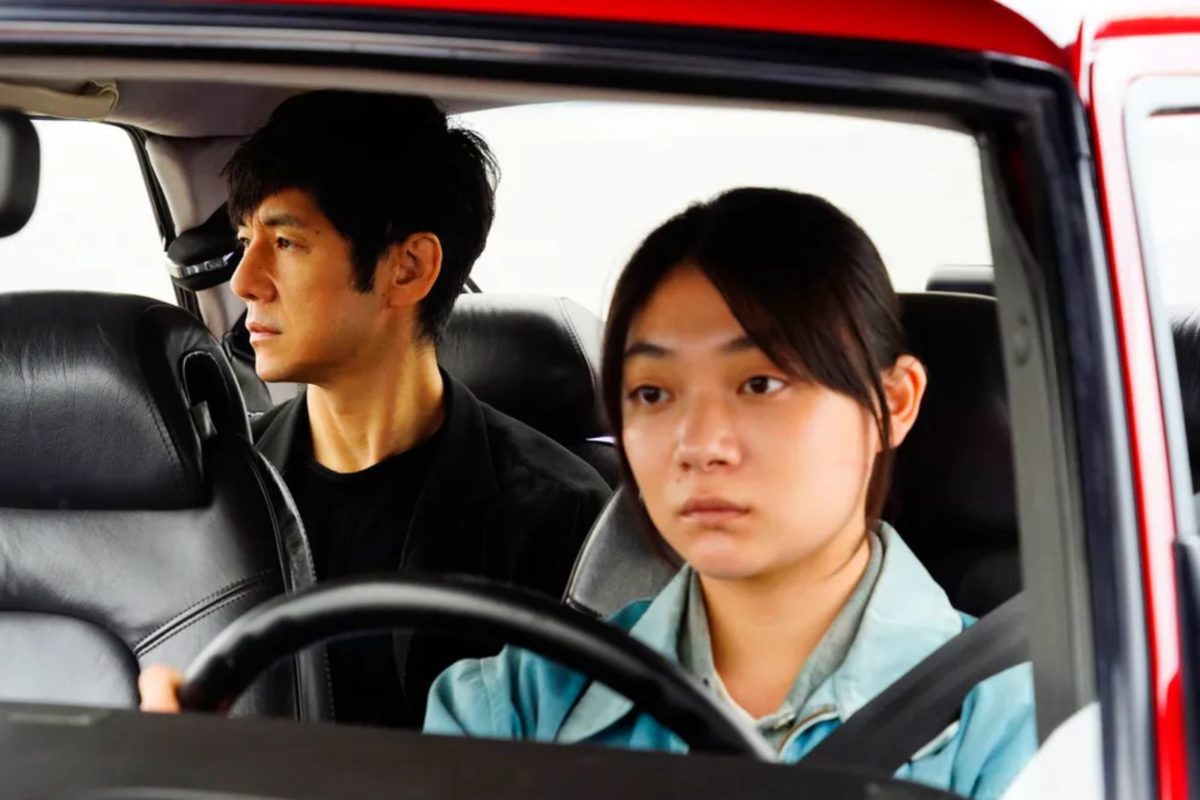
While Hidetoshi Nishijima’s performance is deservedly taking up the majority of conversation surrounding Ryusuke Hamaguchi’s masterpiece Drive My Car (more on that later), his co-lead Tôko Miura is just as good and important to the film’s accomplishments. She is given a difficult task to accomplish when her character largely remains silent for the majority of the film, being a constant presence in the driver’s seat while Nishijima engages in conversations and runs lines of Uncle Vanya. Yet she is the emotional core of the film’s third act, slowly opening up about her past without taking away natural stoicism. With every piece of information she reveals you can see Miura’s face struggling not to crumble while forcing herself to continue the conversation. It is a staggeringly complex performance, one that provides necessary balance to Nishijima’s outwardly emotional turn while connecting with the audience on her own terms. A masterful feat. – Logan K.
11. Mia Wasikowska (Bergman Island)
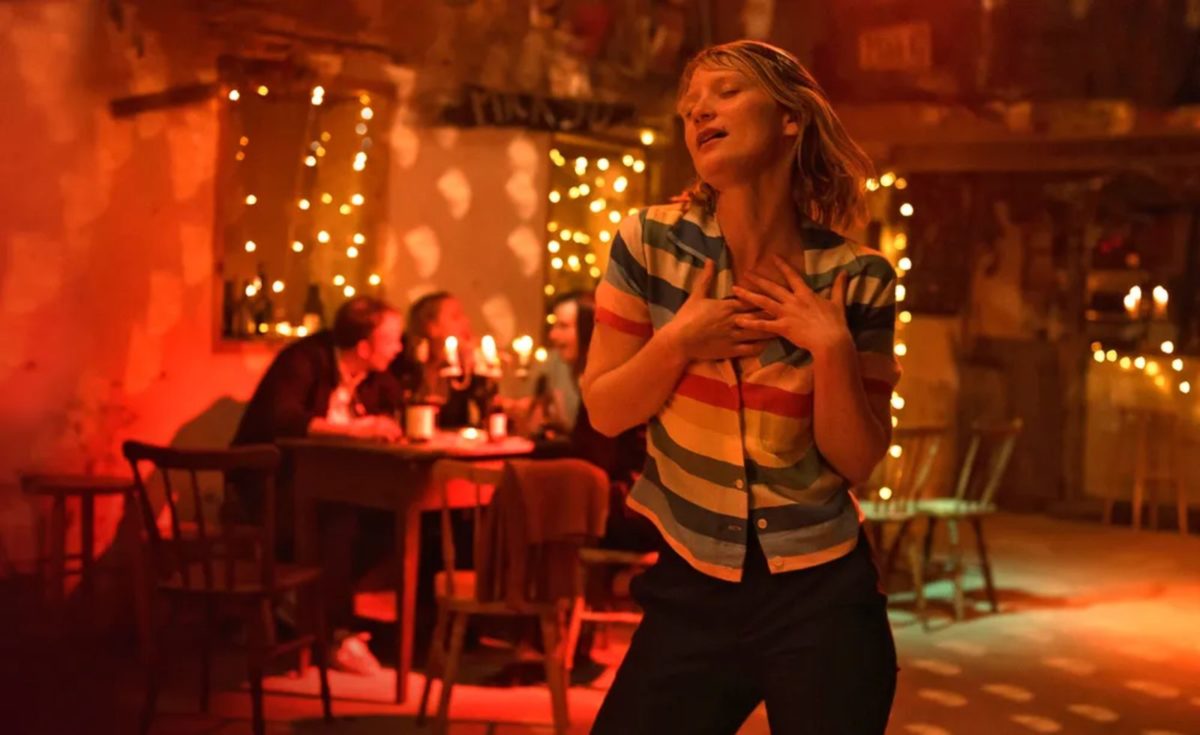
Bergman Island largely uses its characters as pieces of the puzzle to explore creative influence, complex processing of emotions through fiction, and the discomfort that comes from a lack of resolution. Mia Wasikowska is the perfect performer to convey its thematic currents. She impeccably captures the feeling of ennui from a troubled relationship dynamic, conveying the tangible heartbreak of knowing there’s no future with this person but being unable to stop dreaming of it anyway. Wasikowska plays a character who doesn’t get a conclusion and acts accordingly, framing her performance like a woman eternally caught in limbo, desperate for something magical to sweep her away from the eternal abyss. It is career-best work. – Logan K.
10. Brittany S. Hall (Test Pattern)
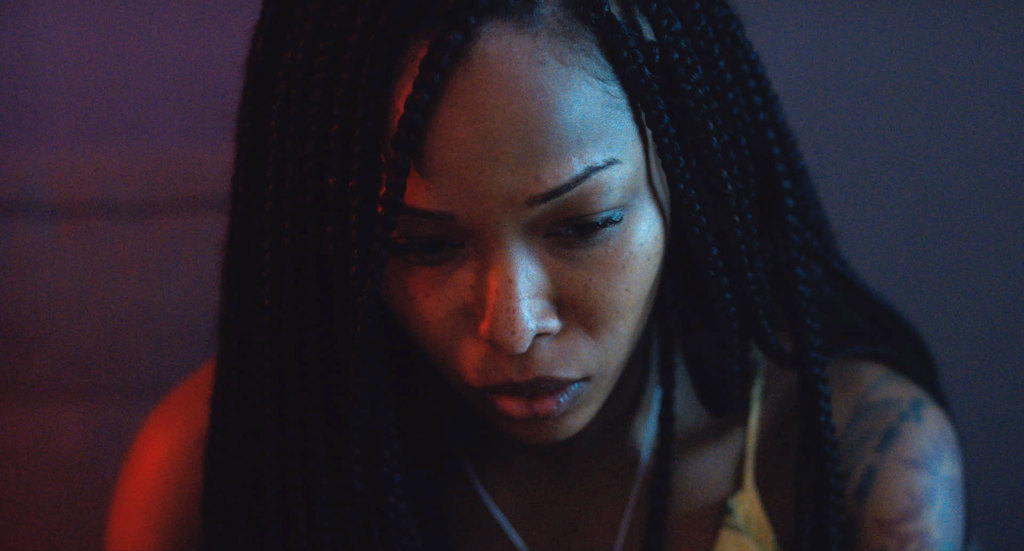
In a film that elucidates and indoctrinates all that’s wrong with the American health care system, Brittany S. Hall goes on a slow, traumatic ride through hell. Coping with the after-effects of being sexually assaulted, Hall sees her trauma attach to everything around her while going through the ires of a troubling relationship and dealing with the corporate workplace. Hall builds the character from the inside-out while displaying all the strength acquired to endure such emotional and physical hardships. – Erik N.
9. Lee Kang-sheng (Days)

Has any living actor given more of themselves than Lee Kang-sheng? A three-decade corpus with Tsai Ming-liang doubles as a chronicle of his own: youthful and spry in Rebels of the Neon God; unbearably tortured in The River; sexually voracious in The Wayward Cloud; pushed to its breaking points in the Walker series; and by the time of Days simply weathered from time. Lee is that rare actor who can convey worlds of feeling in a wide shot or give the most microscopic, immediate response in intense close-ups of his eyes. His body is the instrument, Days one of its greatest pieces. – Nick N.
8. Noée Abita (Slalom)
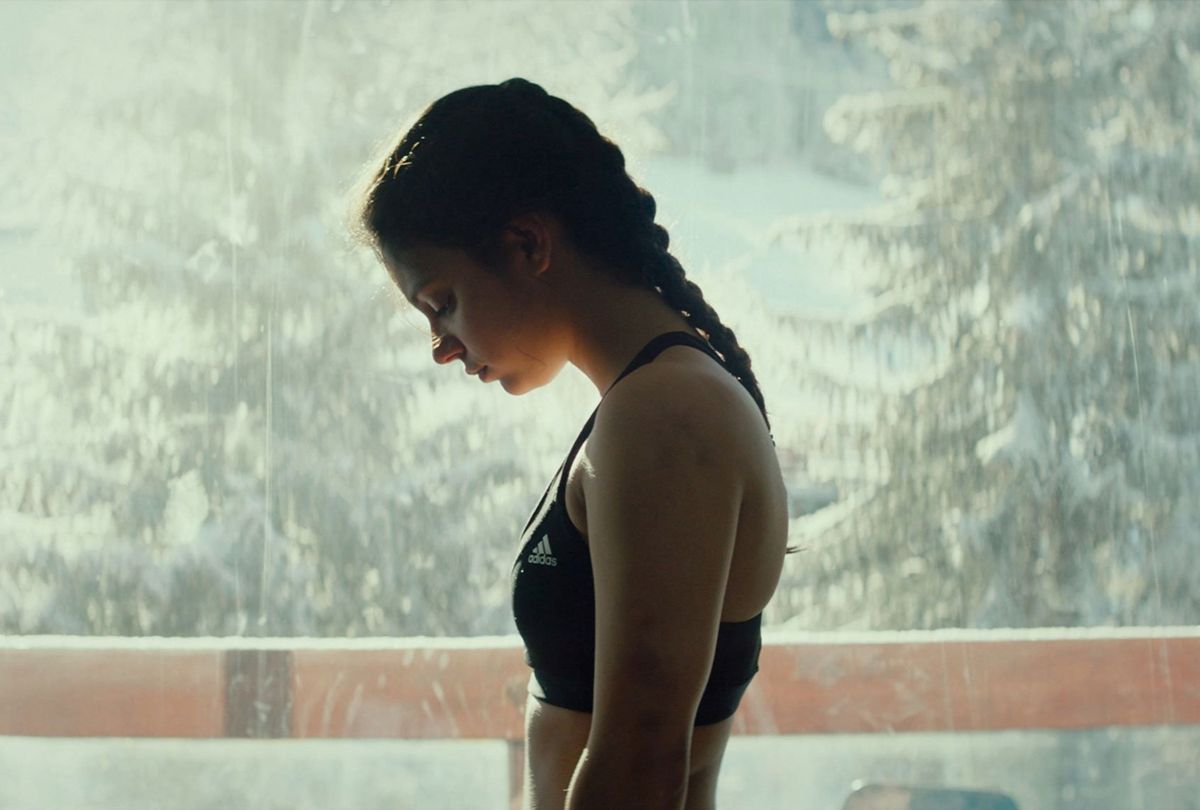
In Slalom, filmmaker Charlène Favier takes an experiential approach where the audience feels the perspective of 15-year-old ski prodigy Lyz more than we ever need dictated to us. With few words star Noée Abita channels the inner turmoil of this young girl, oscillating dramatically between her perceived love for abusive instructor Fred (Jérémie Renier) and the confusion of what’s happening as her understanding of the world crumbles. It’s a primal performance, innately tapping into this character and disappearing into the role, reflecting Abita’s commitment—she learned to ski and adapted the physicality of the character alongside her emotional inner life. – Mitchell B.
7. Adam Driver (Annette)
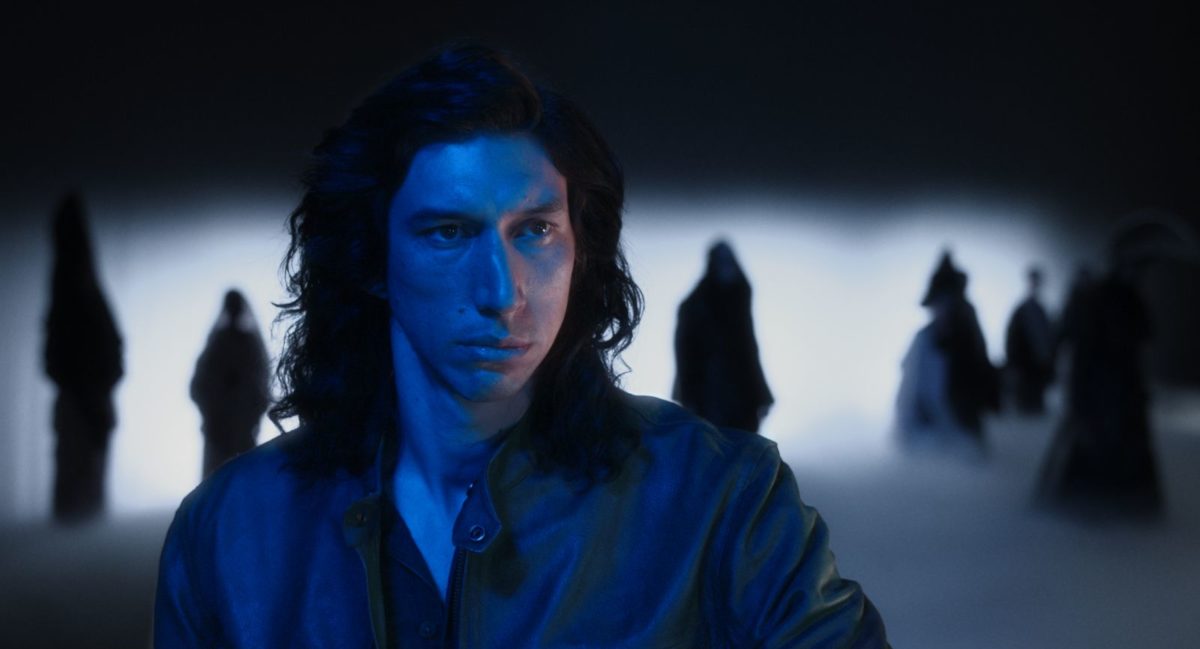
One of Hollywood’s finest physical actors immediately brings his imposing presence to Leos Carax’s Annette. As comedian Henry McHenry, Driver sings, dances, and performs his way through the French auteur’s film, balancing fame, comedy, and music. He’s dangerous and violent, funny and beguiling, and likable enough to keep watching, even as his character plunges into more evil depths. Driver lends his deep, shakily confident voice to the music of Sparks in convincing fashion, commanding the screen alongside Marion Cotillard and Simon Helberg. And still he manages to lend emotional weight to a story about an angelic doll-child, possibly his supreme accomplishment during a busy, loaded 2021. – Michael F.
6. Tilda Swinton (Memoria)
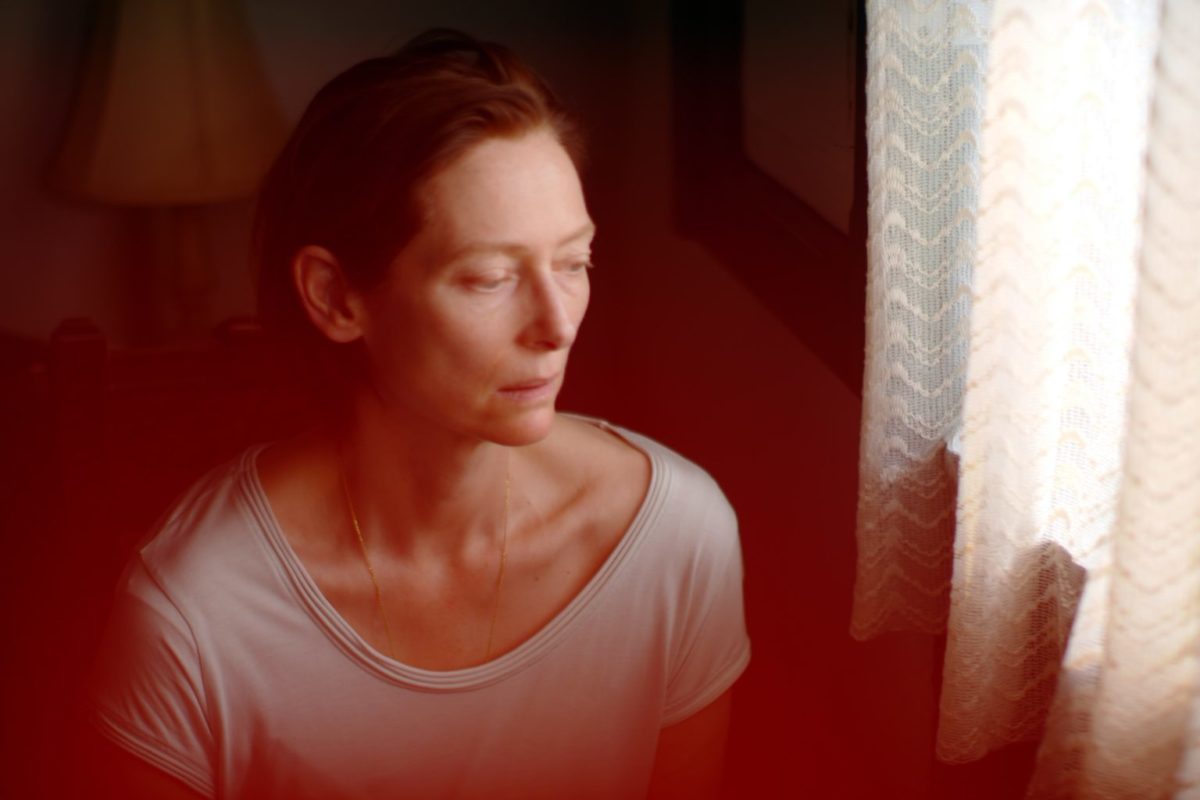
Tilda Swinton has regressed into something of an “epic bacon” phase in her glittering career, showing up in great directors’ films and quirking it up for a scene or two a bit superficially. But there’s the beautifully subtle aspect of her performance style that’s often overlooked, seen in films like Young Adam, her nearly voice-free performance in A Bigger Splash, and now Apichatpong Weerasethakul’s Columbian odyssey Memoria, where she plays Jessica, a British expat haunted by sounds only she can hear. She excels at everything Apichatpong desires of her for Jessica: few performances have given quite this sense of what it’s like to be carrying something fearful beneath your skin, the noises standing in for onrushing memories as much as aural events by themselves. – Ethan V.
5. The Cast of Wheel of Fortune and Fantasy
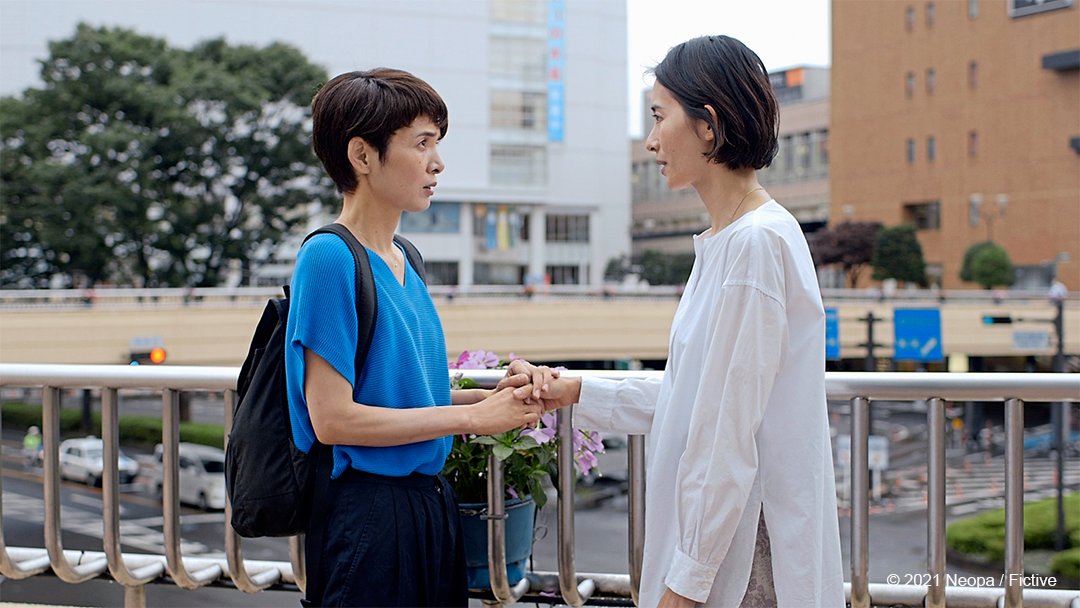
Wheel of Fortune and Fantasy’s ensemble work furthers Ryusuke Hamaguchi’s themes of loneliness, regret, and using performance as a means of connection; it would be wrong not to include all of them on this list. From the opening segment—Kotone Furukawa’s incendiary work as a conflicted ex-girlfriend struggling to move on from the partner she cheated on—to the closing segment where Fusako Urabe and Aoba Kawai engage in a role-play to help resolve past traumas, Wheel is filled with staggering turns that convey the fragility and desperation found in our relationships with others. Yet it’s Katsuki Mori’s performance in the second segment that arguably encapsulates the film more than any other as she’s forced to cope with both an unexpected connection and the gnawing guilt that comes from ensuring it’ll never be able to flourish. Her last scene is some of the finest acting one will see this year. – Logan K.
4. Alana Haim (Licorice Pizza)
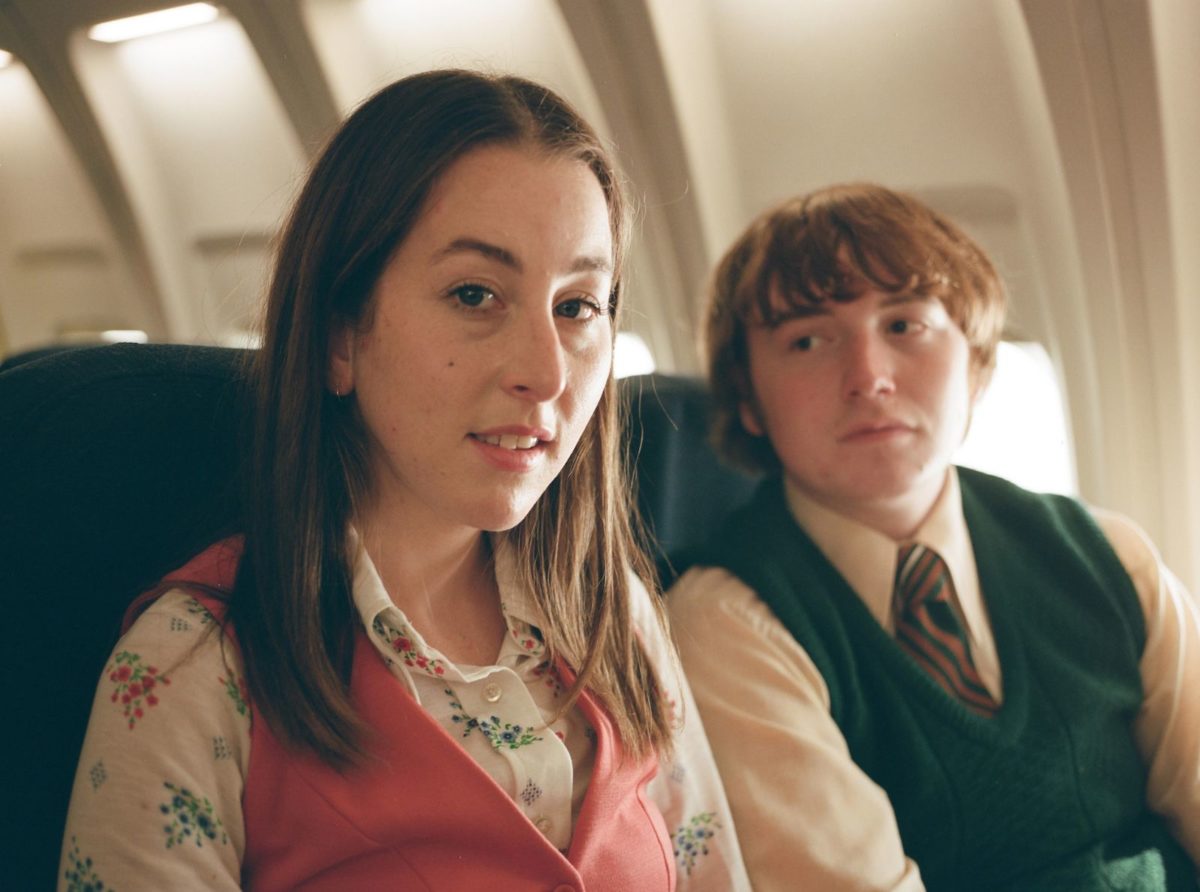
If Licorice Pizza can be described as a movie in perpetual motion, Alana Haim’s debut performance is the gas pedal lurching it forward. Except, of course, when the tank runs dry—then it becomes the steering wheel carefully reversing down the San Fernando slopes. As 20-something Alana Kane, the Haim guitarist-singer oscillates almost imperceptibly between recklessness and responsibility, flirting with a friendship (Cooper Hoffman) and outrunning its romantic temptations. This is a first-timer performing magic—she can’t stop moving but you’re the one left breathless. – Jake K.
3. Simon Rex (Red Rocket)
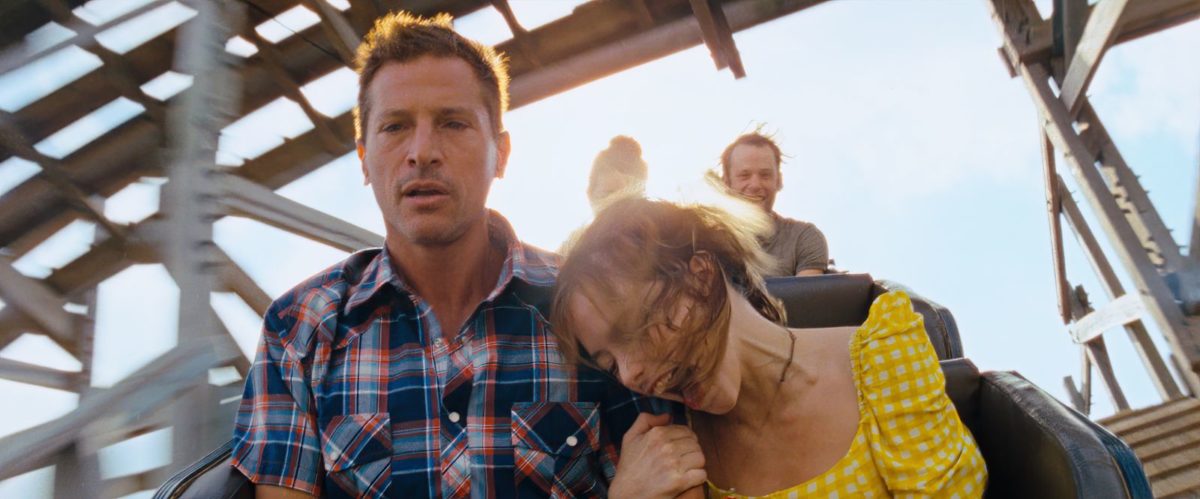
Deservedly has Simon Rex been given a re-introduction with Sean Baker’s Red Rocket. The ex-porn star plays an aging porn star with endless charm and a need to please anyone and everyone around him. Rex imbues Mikey Saber with a freneticism rarely seen from supposed movie stars, announcing himself as someone of note, echoing the persona of someone who believes they should be more famous. The role is ripe with self-indulgence and seedy decision-making, giving Rex ample room to be big and boisterous. It’s a tricky role, made even more impressive by Rex’s limited film career. He taps into something innate, though, and becomes Mikey Saber, fast-talking and destructive in his pursuits—a role Rex was seemingly born to play. – Michael F.
2. Renate Reinsve (The Worst Person in the World)
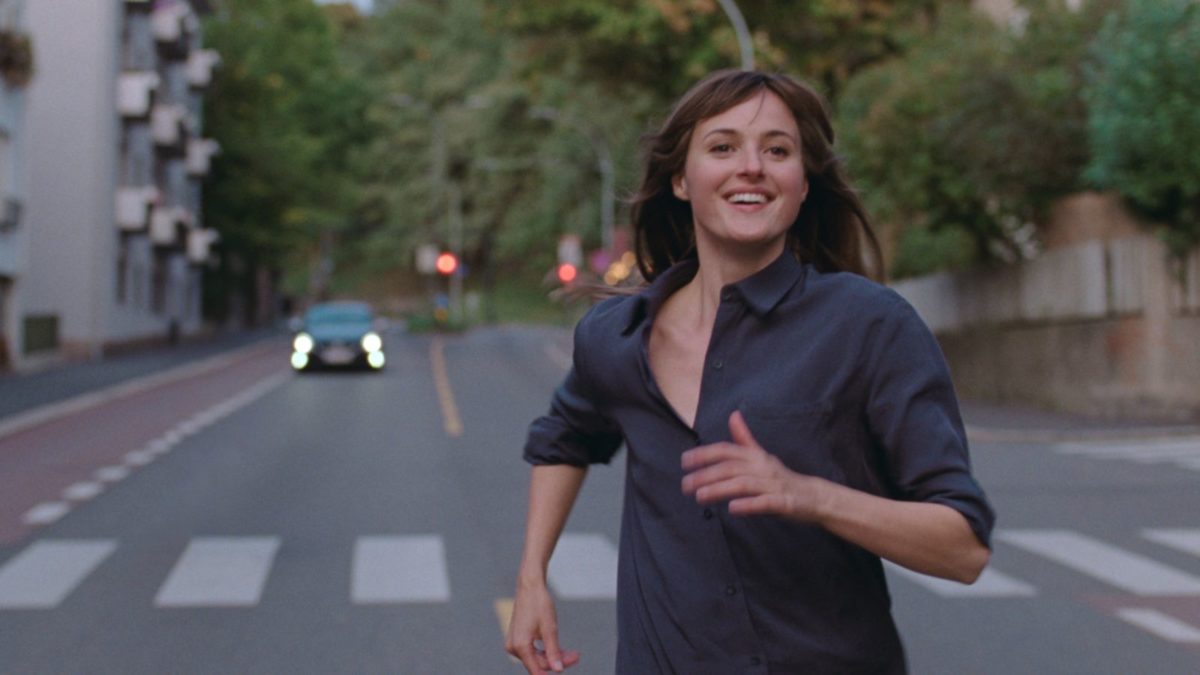
Sometimes it’s healthy to feel like the “Worst Person in the World.” It means you are growing up, sensitive to others, and not really a psychopath. In Joachim Trier’s comedy of manners, Renate Reinsve breaks out as she evolves and occasionally regresses through a series of twelve chapters navigating love and life. She is at times simultaneously sexy, vulnerable, in control, and out of control, learning valuable lessons along the way as she “finds herself” and ultimately, perhaps, ends up back where she started. Reinsve’s performance is a great deal more complex and realistic than it may initially seem in a film about #adulting without a straight line or an easy answer. Reinsve creates a portrait that feels perceptive, realistic, and even relatable to those who haven’t followed a predicable path in one’s career and life. – John F.
1. Hidetoshi Nishijima (Drive My Car)
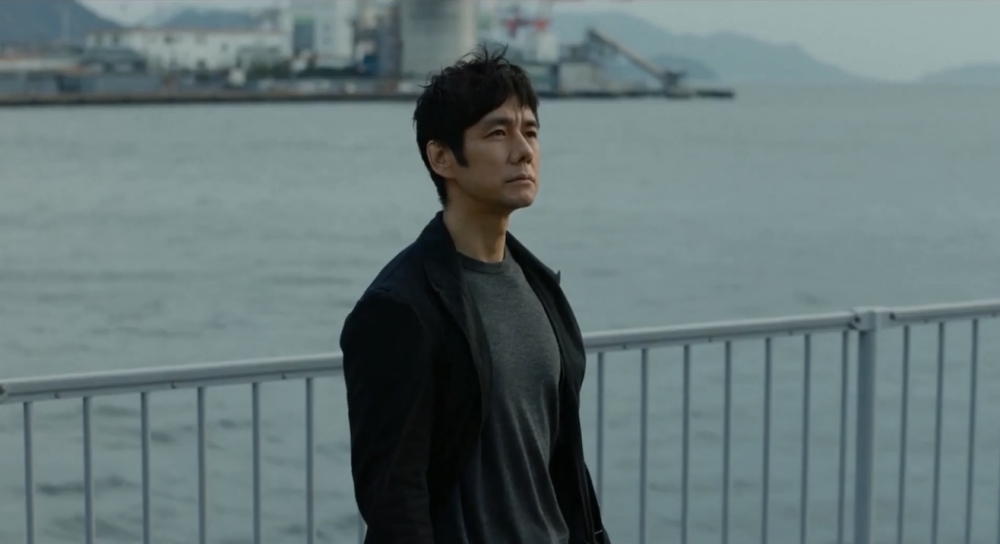
Ryusuke Hamaguchi takes his time. That’s true in every facet of his three-hour opus Drive My Car, including the leading performance of Hidetoshi Nishijima. Trying to move on with his life after a devastating loss, Nishijima’s Yûsuke is cut off from the world, keeping distancing from everyone around him. Everything that we know of him is conveyed underneath layers of aching disguised as apathy and indifference, Nishijima working to build an understanding of the character despite giving very little on the surface. It’s in the smallest of details that we come to know Yûsuke—a subtle reaction or a particular behavior he exhibits towards a character—only gradually bringing more of his truth to the fore at the pace Hamaguchi requires it to come out, maximizing that impact when it does. – Mitchell B.
Honorable mentions
- The Cast of The French Dispatch
- Olivia Colman (The Lost Daughter)
- Jodie Comer (The Last Duel)
- Ariana DeBose (West Side Story)
- Peter Dinklage (Cyrano)
- Mariana Di Girolamo (Ema)
- Colman Domingo (Zola)
- Jasna Đuričić (Quo vadis, Aida?)
- Virginie Efira (Benedetta)
- Rebecca Ferguson (Dune)
- Brendan Fraser (No Sudden Move)
- Blanche Gardin (France)
- Rebecca Hall (The Night House)
- Harriet Sansom Harris (Licorice Pizza)
- Stephanie Hayes (Slow Machine)
- Amir Jadidi (A Hero)
- Troy Kotsur (CODA)
- Mélanie Laurent (Oxygen)
- Vincent Lindon (Titane)
- Mads Mikkelsen (Riders of Justice)
- Mary Twala Mhlongo (This Is Not a Burial, It’s a Resurrection)
- Martha Plimpton (Mass)
- Keanu Reeves and Carrie-Anne Moss (The Matrix Resurrections)
- Fabrizio Rongione (Azor)
- Honor Swinton Byrne (The Souvenir Part II)
- Natasa Stork (Preparations to Be Together for an Unknown Period of Time)
- Ia Sukhitashvili (Beginning)
- Tessa Thompson (Passing)
- Amalia Ulman (El Planeta)
